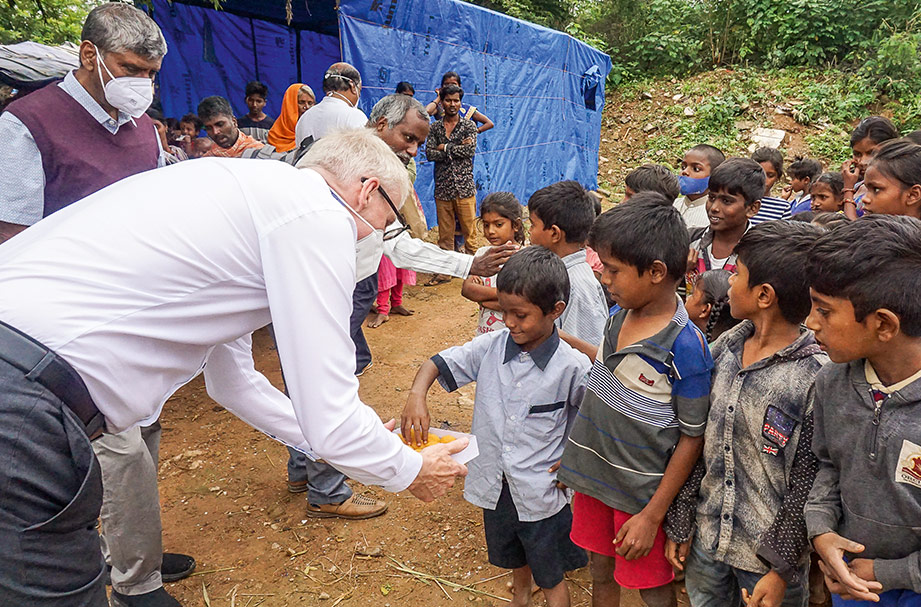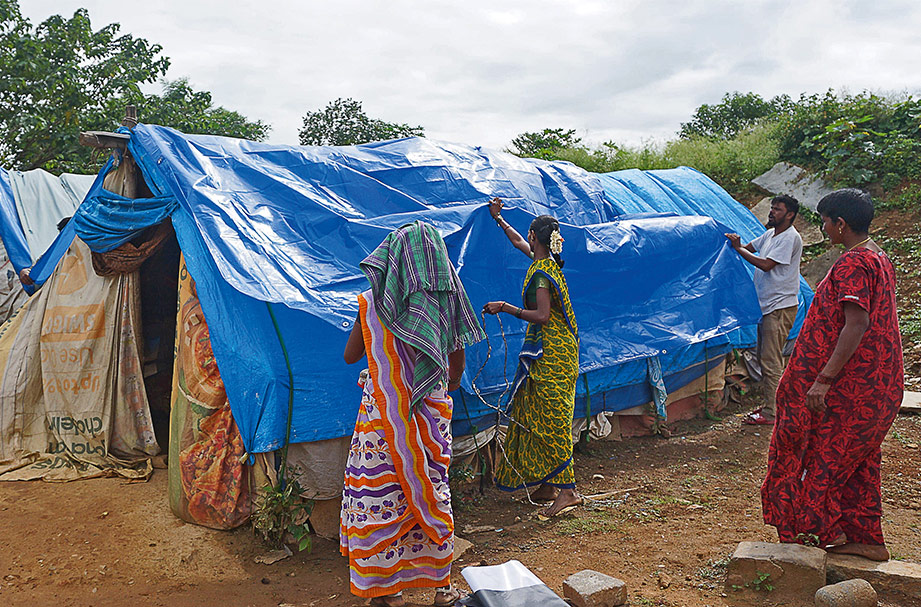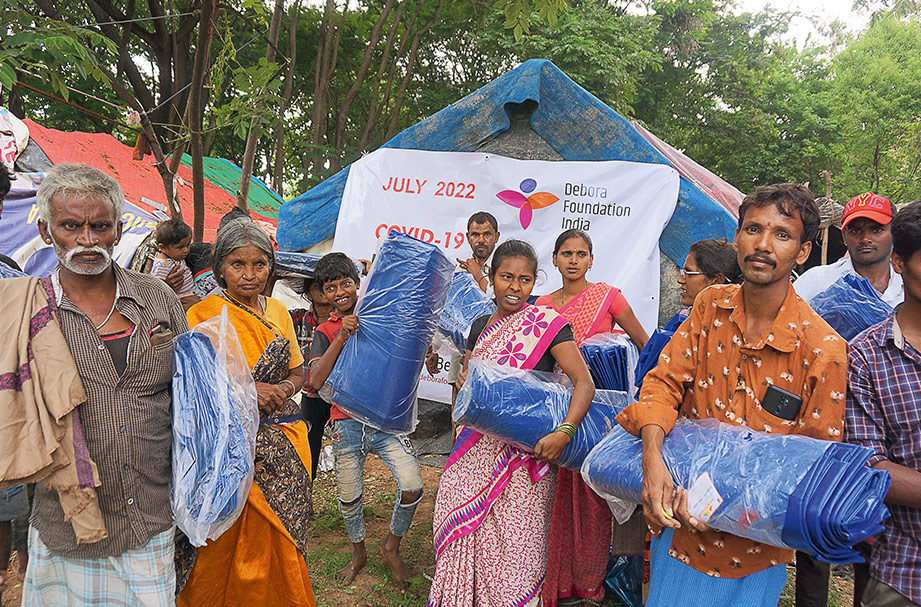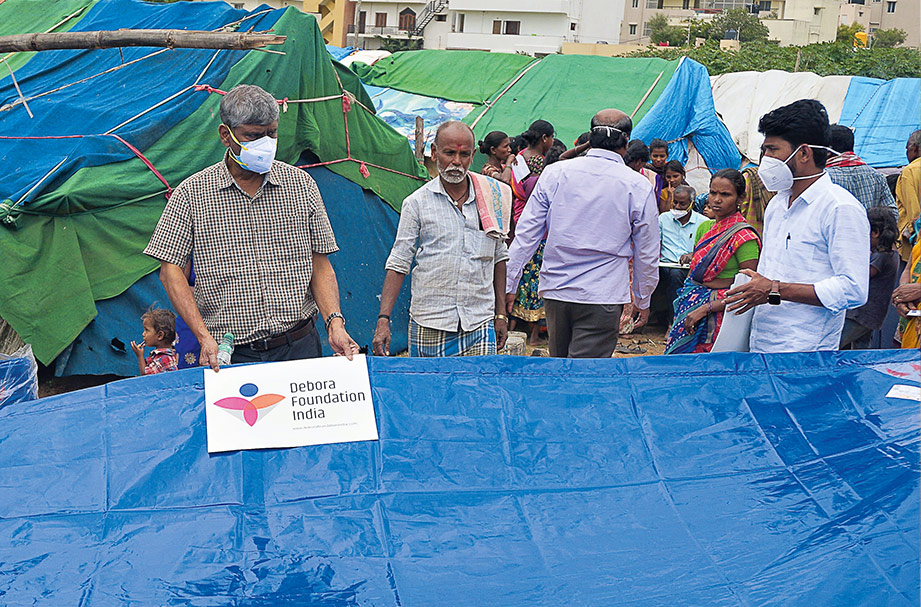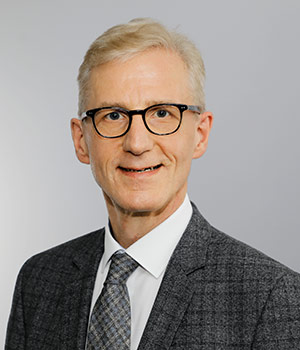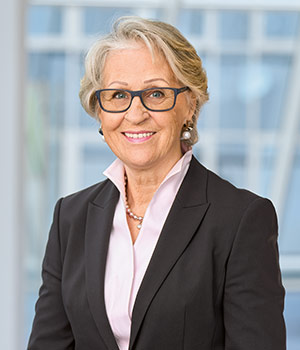Text Sarah Benscheidt ––– Photography
Absolutely everything is full of the same brown dust. The dust from the loamy soil is smeared over everything – children’s bare feet, dogs’ fur, water canisters, laundry, cooking pots and the makeshift shelters. The pandemic has led to an unusual camp being set up in the outskirts of Bengaluru, a city with over a million inhabitants. Somewhere between around 70 and 80 families have cobbled the camp together, using whatever they could find amongst rubbish thrown away by city-dwellers. The pandemic has deprived the landless – people in India who previously financed their homeless, casteless, nomadic existence through casual labour – of their way of life.
SOURCES OF INCOME CUT OFF
A trick in return for a few rupees. That’s how it used to be, back when people paid a few pennies when one of the sacred domestic cows, colourfully decked out, “bowed down” in front of their vehicle. However, since the pandemic, that’s all a thing of the past. Although the cow is still a sacred animal in India, this form of showmanship that previously enabled landless people to keep their heads above water is hardly a way to a better life now. This source of income has dried up as a result of the pandemic – and it’s going to be hard to tap back into it again. This is driving people like the landless (even further) into poverty, slums and hopelessness.
And they’re not the only ones. As in all parts of the world, COVID-19 is pushing people into situations of dire need – especially those who were already living on the edge of society before the pandemic. Millions of other people living in poverty in India have lost the jobs they need to survive – especially people from the lowest castes, such as the Dalit.
BREAKING FREE FROM THE VICIOUS CIRCLE
Once people have got caught in the vicious circle of poverty, it’s very hard for them to break free from its grip through their own efforts. This is why the Debora Foundation is lending a helping hand, providing rapid, unbureaucratic and sustainable aid. Established in Bengaluru in 2018, the Foundation’s primary objective is to set up long-term aid structures by building an education and training centre for Dalit children. However, the serious aftermath of COVID-19 means there still needs to be a continued focus on the emergency aid that was introduced in 2020 in response to the hardship caused or made worse by the pandemic. Together with its partner in India – the International Justice Mission e.V (IJM), an international aid organisation – the Debora Foundation supplied around 5,000 people with food and toiletries at the start of the pandemic and also set up a sewing school for young girls. This provides the basis for a “small return on investment”, as Dietmar Roller, development expert and CEO of the IJM put it, explaining the thinking behind the project. So far, 150 particularly needy young women have also been given sewing machines so that women, too, can earn money by making and selling items such as face masks or pieces of clothing.
PROTECTION FROM HOMELESSNESS AND FORCES OF NATURE
Now, in 2022, as aftershocks from the pandemic continue to wreck livelihoods and the risk of homelessness is also very much higher due to the monsoon season, the Debora Foundation is expanding its emergency aid programme. The Foundation is providing almost 500 people who have no permanent abode, such as the landless, with heavy-duty tarpaulins. Spread over the shacks and dwellings that the people themselves have made, these provide protection against storms, damp and, therefore, disease.
A small tented village has grown out of this. During a visit to this camp, Roller and Rainer Reissner, Managing Director of the Rittal Foundation, were particularly pleased to see that, after two years, the aid provided by the Debora Foundation is visibly bearing fruit. People have a roof over their heads, are living in safety and are being given a livelihood. Best of all, these delicate shoots of hope are rooted in sustainable soil and are slowly beginning to grow unaided.
Charu (not her real name), a 15-year-old girl from the landless community who is benefiting from the access to education opened up by the Debora Foundation in one of the women’s self-help groups, passes on her newly acquired knowledge to other children in the camp – all on her own initiative. “This is genuine extra tuition that’s going on here,” says Roller, who’s really impressed by the double-domino effect. He explains that, although elementary education is ostensibly available, children from deprived backgrounds, such as the Dalit caste, often fail to keep up in ‘chalk and talk’ lessons (the only style of teaching used) “and they therefore also lose the opportunity to access secondary school education and the prospect of a better future”.
The progress made by Charu demonstrates how people can break free from the vicious circle and just how fruitful and effective the commitment shown by the Debora Foundation can be for each individual. After all, when Charu now teaches the Dalit children under the shelter of the tents, she also symbolises a very special type of interaction – helping people to help themselves, so they can live in freedom and safety.
